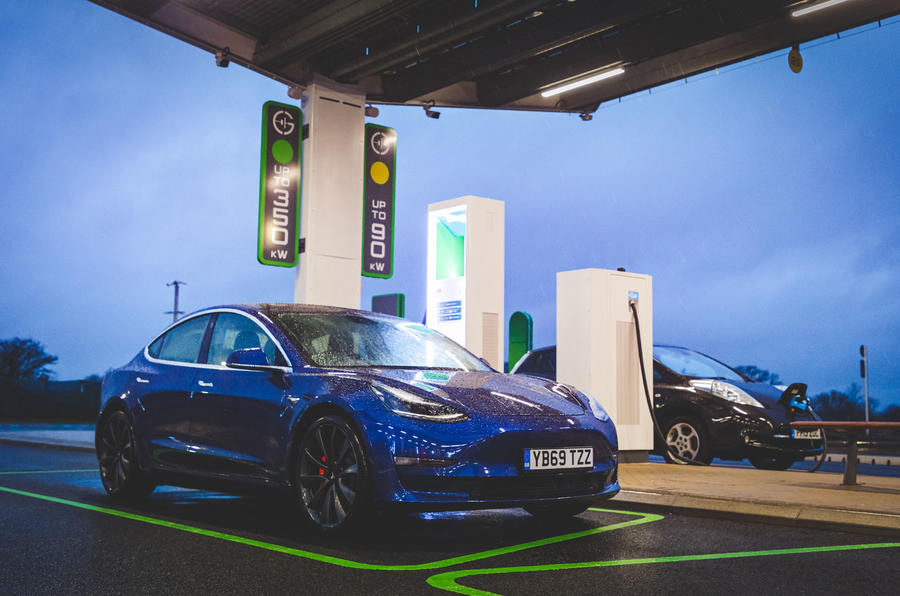The number of electric vehicle chargers in the UK increased by 45% during 2023, as ultra-rapid devices and hubs were installed at a record rate.
According to new data published by charger-mapping service Zapmap, there were 53,906 public chargers across the UK by the end of December 2023.
Ultra-rapid (100kW-plus) chargers accounted for 4869 of the total, an increase of 112% compared with the number at the end of 2022.
However, the UK government missed its target of having six or more 150-350kW chargers at every motorway service station in England by the end of the year.
The number of slow (3-6kW) chargers also increased significantly, up 65% to 14,746. That makes them the second-most abundant type of device in the UK, behind fast (7-22kW) chargers.
Fast chargers recorded a 34% rise to 28,622 devices.
According to Zapmap, there are now 72% more on-street chargers than there were at the end of 2022. However, it added that the roll-out is “regionally patchy” and dependent on local authorities.
The three regions with the greatest number of chargers are Greater London (18,561), the south-east of England (6174) and Scotland (4591).
Melanie Shufflebotham, co-founder and COO of Zapmap, hailed 2023 as a “very good year for EV charging” but added that “we know that EV drivers want more chargers and a better charger experience”.
Ian Johnston, CEO of charger provider Osprey and chairman of industry body ChargeUK, said: “These numbers can give drivers further confidence.
"Our members are putting charge points in the ground at record pace and will spend £6 billion before 2030 on ensuring the UK has the right charging solutions in the right place.
“But we intend to go even further and faster this year to make the UK the best place in the world to drive and charge an EV."










Join the debate
Add your comment
45 percent in one year, impressive. Be interesting to know if the number of petrol stations is diminishing and at what rate.
From other news sources it appears the largest holdup is Utility Companies & their contractors failing to connect newly installed chargers to the national grid quickly enough.
BT's initiative with redundant telecoms green boxes should help. Could any actual phone boxes that remain also be adapted?
So, the Government missed a target fr installing, who installed them?, certainly was the Government, and, whoever did did.!, buck passing?, who'd want to be in Government?